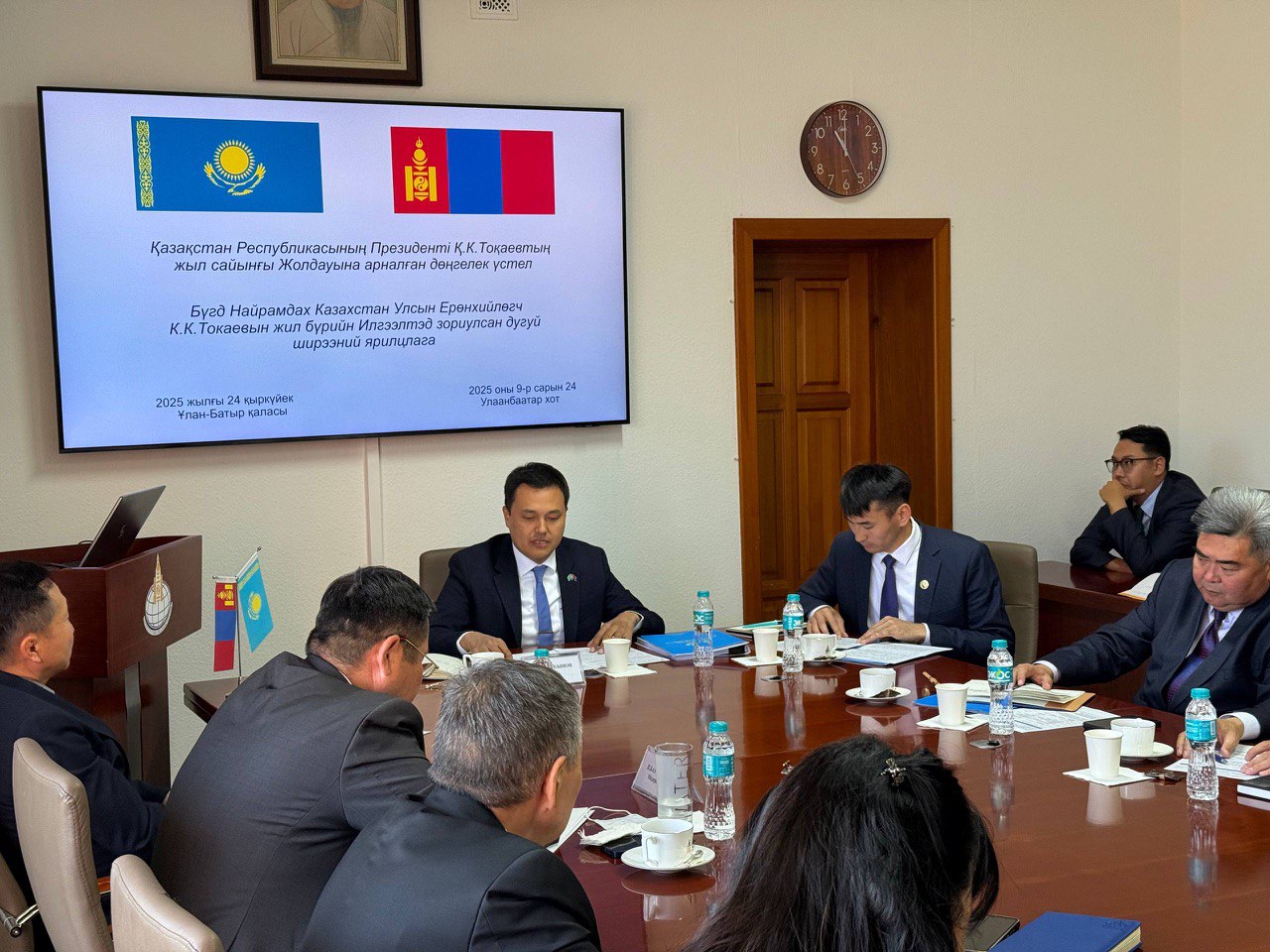Mongolian Experts Praised the Priorities Outlined in President Kassym-Jomart Tokayev’s Address to the Nation

Ulaanbaatar, September 24, 2025 – The Institute for Strategic studies under the National Security Council of Mongolia hosted a roundtable dedicated to the annual Address of the President of the Republic of Kazakhstan Kassym-Jomart Tokayev entitled “Kazakhstan in the Era of Artificial Intelligence: Current Challenges and Solutions through Digital Transformation”.
Providing a detailed overview the Ambassador of Kazakhstan to Mongolia Almas Seitakynov emphasized that the Head of State had set a crucial task – digital transformation, which envisions not only the introduction of advanced technologies but also the creation of a comprehensive digital ecosystem. Kazakh diplomat underlined that Kazakhstan’s strategic goal is to become a modern digital state, capable of effectively responding to the challenges of global competition and ensuring sustainable economic growth.
Mongolian experts commended the reforms underway in Kazakhstan, expressing confidence that the consistent implementation of the President’s initiatives would serve as a powerful driver for the country’s accelerated development, open new opportunities for business, increase foreign investor interest, and further strengthen Kazakhstan’s international standing. They also noted the regional significance of Kazakhstan’s reforms, emphasizing that the successful realization of the declared goals could serve as an example for other states.
In addition, participants of the roundtable exchanged views on the current state and future prospects of Kazakh-Mongolian cooperation. Special attention was given to the development of trade and economic relations, the expansion of investment interaction, as well as the strengthening of cultural and humanitarian ties.
As an outcome of the event, both sides agreed to continue their expert dialogue on pressing issues of bilateral cooperation.